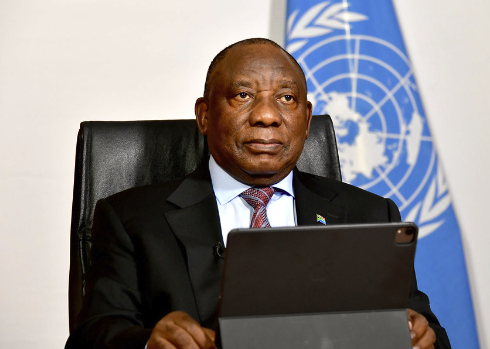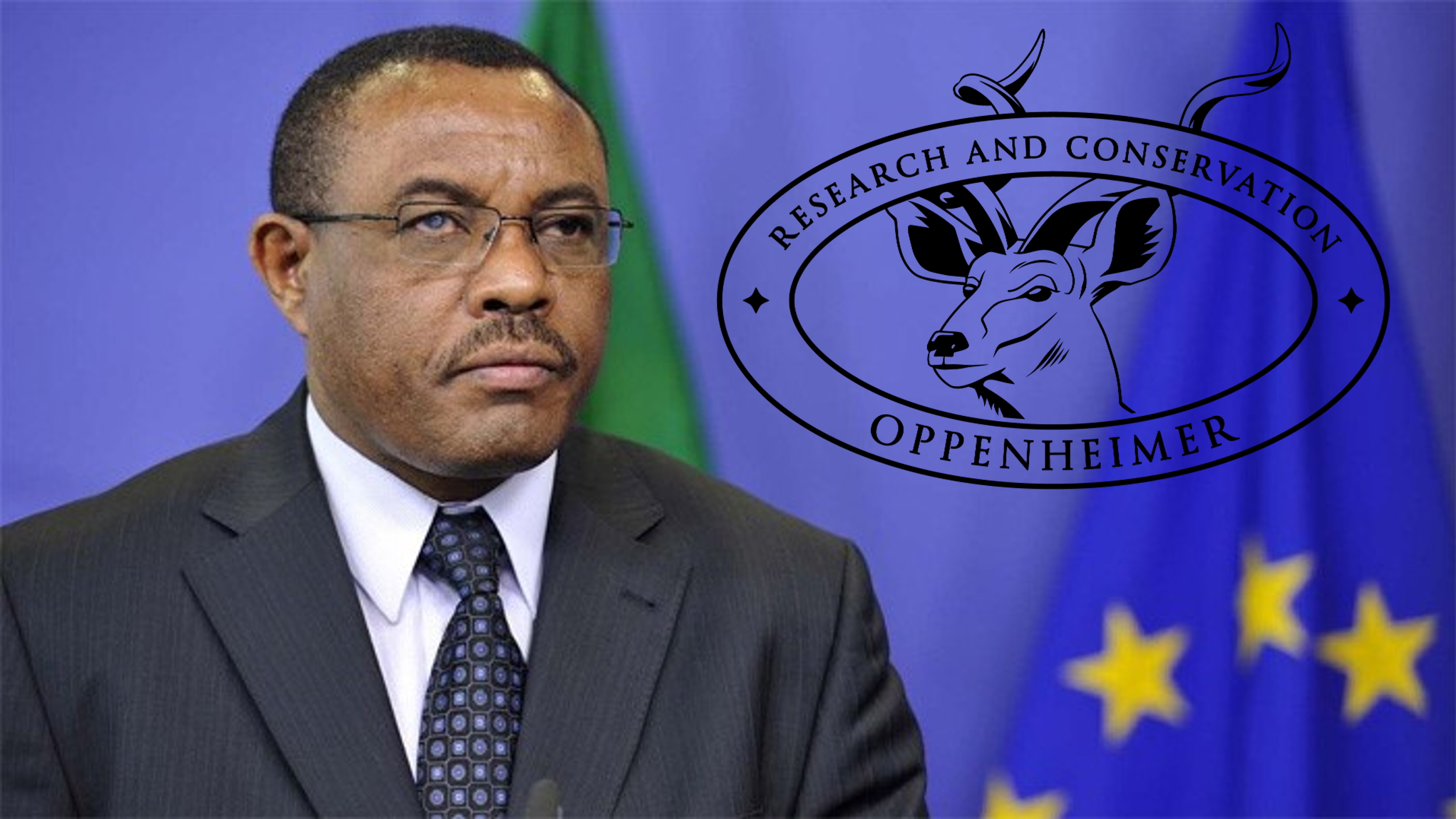News
Time to Tame the ANC’s Unpopular Populists
For the sake of South Africa, let’s hope that Ramaphosa and his pusillanimous secretary-general find the courage to take charge and lead from the front before the ANC’s unpopular populists do more damage.

Research Director, The Brenthurst Foundation

Director, The Brenthurst Foundation

At some point in the recent past, the ANC underwent a fundamental change. From being a dyed-in-the-wool centrist organisation obsessed with control by the national leadership, it has become decidedly federalist, with provincial leaders permitted to openly contradict the national leadership. This may be a canny strategy to keep the embers of dogma alive in the Government of National Unity (GNU), or it may simply be down to weakness on the part of the centrists.
Case in point: the perpetual pouting of Gauteng’s populist premier, Panyaza Lesufi. When President Cyril Ramaphosa negotiated the GNU at national level, Lesufi was among those who opposed it. But he lost the debate and common sense prevailed, for a while.
In the ANC of yore (read of 10 years ago), that would have been that. All would have had to acknowledge the position adopted and fall in line or face the boot.
These days, anything goes. The defeated Lesufi defiantly chose to ignore the GNU position and instead assembled his own Frankenstein executive in Gauteng from the parts of small parties lying about the room after the Election Day defeat.
The main point of his coalition was not effective governance so much as ensuring that he directly contradicted the national imperative by excluding the DA from his administration. This would, presumably, also ensure that the taps to contracts remained open.
He has since gone further, gleefully leading the removal of the Tshwane mayor, Cilliers Brink (DA). In this venture he was assisted by ActionSA, a party which vowed to voters that it would never work with the ANC and which refused to enter the GNU.
Lesufi’s removal of Brink, a mayor who is generally believed to have been highly effective, on spurious power-driven grounds, represents a frontal assault on good governance.
But more than that, it demonstrates that the ANC now has multiple centres of power, with provincial leaders such as Lesufi capable of charting their own course, even if this is at odds with the national government position.
The failed attempt by the ANC’s secretary-general, Fikile Mbalula, to reign in Lesufi over comments he made about the GNU served to underscore this.
In a letter dated 6 October 2024, Mbalula wrote that he had “observed with concern your public utterances with matters pertaining to the GNU and the coalitions in local municipalities”.
These utterances, he said, “go against the resolutions made by the National Executive Committee (NEC)”, which had determined that the GNU was the party’s “most favourable option” following the failure of the ANC to get 50% in the election.
“In contrast, your public articulations seem to argue in contradiction to the NEC resolution in this regard, thereby bringing the ANC into public disrepute. Ordinarily, any organisation that fails to observe the basic tenet of organisation with respect to the principle of democratic centralism naturally invites such public disrepute and ridicule of its leadership.”
Lesufi defended himself vigorously against the charges and Mbalula was made to beat a hasty retreat, setting a new low for the ability of the national ANC to control its populist proconsuls.
“Comrade Panyaza, like all comrades, presented himself to the national officials as requested and got counselling but, at the same time, got to explain his side of the story. Comrade Panyaza … provided an explanation that was accepted by the officials,” said a contrite Mbalula.
This sort of political chicanery would be amusing if the consequences were not so dire. It is no accident that the voters of Gauteng rejected Lesufi following five long years of decline in the province and the collapse of orderly governance in its cities.
Bizarre appointments
It was Lesufi who oversaw the bizarre appointments of a succession of failed mayors from minor parties as Johannesburg entered a perpetual water emergency and its infrastructure degraded.
Memories are short, so it is worth recalling that the ANC lost a massive 15.4% of its electoral support in the province between the 2019 and 2024 results, a figure that would have led to the instant dismissal of the premier in any party taking its electoral future seriously.

The ANC received just 34.75% of the provincial vote (from 50.19% in 2019); and the DA 27.45% in 2024. Lesufi’s offer to the DA of two seats in an effective 11-person executive was in the context ludicrously low and exhibited bad faith against the overall GNU spirit, leaving Gauteng’s prospects for more growth and better governance marooned.
Lesufi’s populist embrace of the EFF, itself suffering electoral decline with just 12.93% of the vote, is only likely to accelerate this slide with the local government elections of 2026 looming. ActionSA, which now provides the mayor of Tshwane, received just 4.16% of the provincial vote, or 163,511 votes in a province with a population of more than 15 million. Now populism trumps common sense again as the ANC and EFF join hands to evict the DA from Tshwane and install an ActionSA mayor.
The ANC has forgotten its advisory in October last year reviewing the performance of EFF-ANC coalitions in three municipalities — Johannesburg, Ekurhuleni and Nelson Mandela Bay — which had been orchestrated by none other than Lesufi. Former Gauteng Premier David Makhura told the ANC’s NEC that coalitions with a “proto-fascist”, “anti-establishment” EFF were “more damaging than helpful” and undermined the ANC’s support,
However, the ANC, after a rare awakening to this threat, appears happy to return to its slumber and allow Lesufi’s failed governance models to roll on in the country’s most populous province.
Not only that, but the Lesufi-inspired education legislation which sets the scene to wipe out schooling in Afrikaans is the offspring of his populist education policies while in charge of that portfolio in Gauteng. During his tenure, Lesufi sought to create the false picture that Gauteng’s schools were ridden with racism, blowing up every isolated allegation of discrimination into a matter of grave national concern.
Ramaphosa has, for now, seen the wisdom of sidestepping the offending clauses in this Bill while he indulges in further consultation. Can he stand up to the populist rebels and steer the country on the path to rational progress or has the tail begun to wag the dog?
Lesufi, a man for whom ambition is the primary driver, no doubt has one gimlet eye on the post-Ramaphosa ANC presidency. His plan is to create chaos and dysfunction and then sweep to power in his own inverted version of the GNU with the EFF and MK.
For the sake of South Africa, let’s hope that Ramaphosa and his pusillanimous secretary-general find the courage to take charge and lead from the front before more damage is done by the ANC’s unpopular populists.
Thabo Mbeki’s legacy was the disastrous Zuma years; Ramaphosa will have to act boldly lest Lesufi is his.

